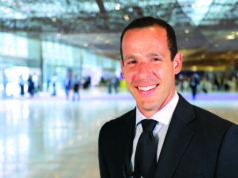 During the Renal Interventions Controversies programme that took place on the first day of the recent Charing Cross (CX) International Symposium (23–25 April, London, UK), there was a wide range of education and audience debate provided, covering topics such as the underutilisation of tools currently available, a roundtable discussion of international approaches to issues in vascular access, whether nutcracker syndrome is ‘real’, as well as the role of renal denervation in the current treatment paradigm.
During the Renal Interventions Controversies programme that took place on the first day of the recent Charing Cross (CX) International Symposium (23–25 April, London, UK), there was a wide range of education and audience debate provided, covering topics such as the underutilisation of tools currently available, a roundtable discussion of international approaches to issues in vascular access, whether nutcracker syndrome is ‘real’, as well as the role of renal denervation in the current treatment paradigm.
The session, titled “We have all the tools, we just don’t use them properly”, was chaired by Robert Shahverdyan (Asklepios Klinik Barmbek, Hamburg, Germany) and moderated by Karen Stevenson (NHS Greater Glasgow and Clyde, Glasgow, UK). Real-time monitoring of vascular access was the first presentation given by Rajesh Sivaprakasam (Barts Health NHS Trust, London, UK), who made the case that real-time monitoring with the use of new technology was an “essential step” for the future of fistula maintenance. Following Sivaprakasam, David Kingsmore (NHS Greater Glasgow and Clyde, Glasgow, United Kingdom) took an opposing position in his discussion of surveillance, arguing that the promise of future devices should not detract from the importance of using the tools and methods currently available in the correct way.
Reflecting on the session, Shahverdyan spoke to Renal Interventions, stating: “I had the pleasure of moderating this session on renal controversies. We had two presentations talking about the monitoring of dialysis access, [sessions discussing] unused treatment options, such as the leg access, and an interesting talk about flow measurements during and after dialysis access. The main takeaways from this session are that the monitoring and surveillance of dialysis access is important, but that it’s still underused.”
Later in the session, a roundtable discussion considered international approaches to vascular access challenges. Chaired by Nicholas Inston (University Hospitals Birmingham, Birmingham, UK)—who oversaw a panel comprised of Shahverdyan, Robert Jones (Queen Elizabeth Hospital, Birmingham, UK), Shannon Thomas (Prince of Wales Hospital, Sydney, Australia), Raphael Coscas (Ambroise Paré Hospital, Paris, France), and Maarten Snoeijs (Maastricht University Medical Centre, Maastricht, The Netherlands)—the roundtable addressed practice variations on an international level, discussing four cases and asking both panel and audience members to offer their thoughts on treatment options. Commenting on the roundtable, Inston said: “I think it was a great interactive session between international experts, which includes both the panel and the audience. We had comments from South America, the United States, Europe, and Australia— the truly global nature of the session reflected the essence of CX.” He also added: “I don’t think that we could’ve gotten more controversial; for everything we presented, there were at least 10 differing suggestions on how to proceed.”
The afternoon continued with a session titled “Controversies in renal vessel management”. Anchored by Inston and moderated by Frank Dor (Imperial College Healthcare NHS Trust, London, United Kingdom), it featured presentations discussing the topic of renal denervation, and the role that it can, and possibly should, play in the future of renal interventions. One talk of note was given by Lindsay Machan (Vancouver General Hospital, Vancouver, Canada), who stated that vascular surgeons and interventional radiologists should care about the resurfacing of renal denervation, as new data has shown that it allows for better blood pressure control on the same number of medications. As well as this, it also included a talk given by Paul Crowe (The Priory Hospital, Birmingham, United Kingdom) regarding the legitimacy of nutcracker syndrome—not only is it real, he stated, but “when it matters, it matters a lot”— and debates over the merits of therapeutic and surgical approaches for treating it. Wrapping up the session, Robert Morgan (London, United Kingdom) gave a presentation arguing that there is a need for a defined approach to renal artery aneurysms.










